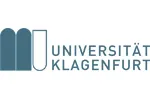History
The establishment of the University of Warwick was given approval by the government in 1961 and received its Royal Charter of Incorporation in 1965. It is situated on a large 700 acre campus which straddles the boundary between the City of Coventry and the County of Warwickshire. The idea for a university in Coventry was mooted shortly after the conclusion of the Second World War but it was a bold and imaginative partnership of the City and the County which brought the University into being on a 400 acre site jointly granted by the two authorities. Since then, the University has incorporated the former Coventry College of Education in 1978 and has extended its land holdings by the purchase of adjoining farm land.
International
The University initially admitted a small intake of graduate students in 1964 and took its first 450 undergraduates in October 1965. In October 2007, the student population was over 16,646 of which 7009 are postgraduates. 20% of the student body comes from overseas and over 125 countries are represented on the campus.
International students must apply to the university via the UCAS service.
Subject Areas
The University has 29 academic departments and over 50 research centres and institutes, in four Faculties: Arts, Medicine, Science and Social Sciences. The University hosts two HEFCE Centres for Excellence in Learning and Teaching (CETLs): CAPITAL and Reinvention. The new Medical School took its first students on an innovative 4-year accelerated postgraduate programme in September 2000. In summer 2004 the first 64 students graduated from the school. In October 2010 the combined intake of the Warwick Medical School was 403, making it one of the largest in the country. Since 2007 the University has been empowered to award its own medical degrees.











